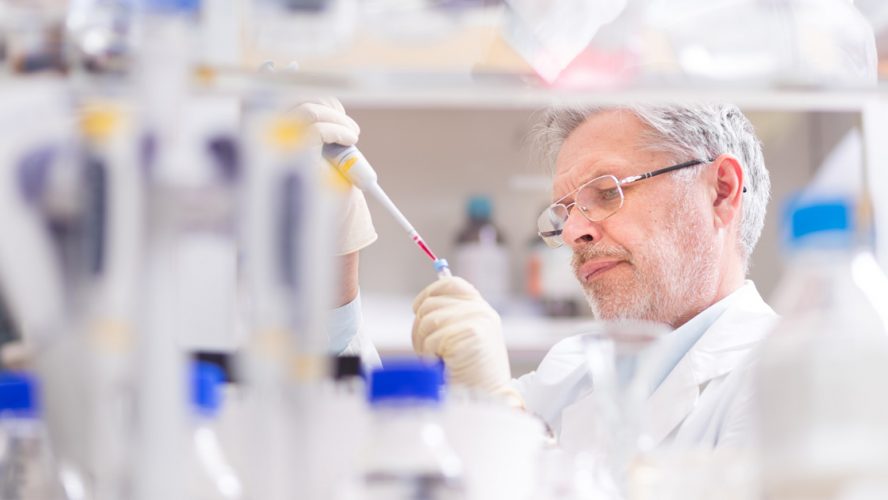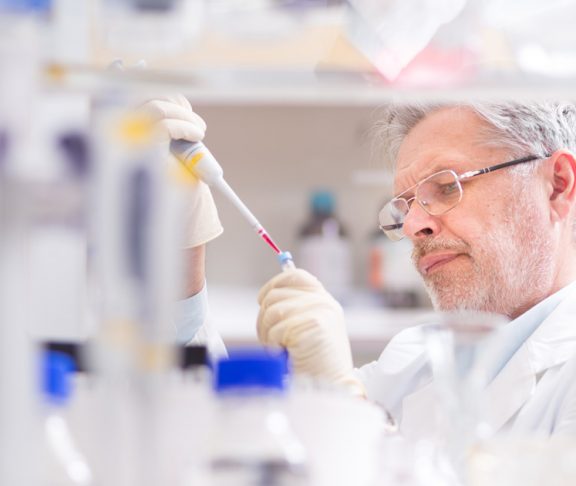
Professor Bryan Hennessey
Clinical Lead, Cancer Trials Ireland
We are standing in the cusp of a new dawn of personalised treatments. This could revolutionise the way we treat cancer – but a lack of investment threatens to hold Ireland behind.
Rapid advances in medical science mean we now understand more about cancer than ever. A new generation of personalised medicine stands at the ready.
But as innovation comes to a global head, a lack of clinical trial investment means Ireland risks getting left behind, said Professor Bryan Hennessy, Consultant Medical Oncologist and Clinical Lead at Cancer Trials Ireland.
He says: “Cancer treatment is moving towards a position where it’s based on a detailed understanding of the molecular abnormalities that drive cancer.
“Cancer is many different diseases and everyone’s cancer is unique. The more we see and understand these differences, the more targeted and personalised treatments we can develop.”
Clinical trials need more government funding
The only way to develop these innovative new treatments, he went on, was by conducting robust clinical trials – but a lack of government and Department of Health funding is making that increasingly difficult to do in Ireland.
“The biggest barrier to carrying out cancer trials at the moment is funding; pure and simple. We have a National Cancer Strategy that aims to increase the proportion of people with cancer who go onto trials, but we are going in the wrong direction.
“Cancer Trials Ireland have seen significant cuts, of 20%, in funding since the economic recession. The percentage of people we are able to put onto cancer trials is actually dropping.”
It means that Ireland risks being “left behind” in terms of the introduction of new treatments.
What’s more, it contributes to a disparity in the options available to people with the more common cancers, such as breast, lung and bowel, and those diagnosed with rarer forms of the disease, like pancreatic and kidney.
More focus on less common cancers is needed
Professor Hennessy explains that Cancer Trials Ireland, which runs most of the country’s oncology studies, relies on funding from the Health Research Board and generous donations from the Irish Cancer Society, St Luke’s Institute for Cancer Research, the pharmaceutical industry and philanthropists.
“Industry funding ticks most of the boxes for common cancers, because that’s where they get the biggest return. While the industry has its own policies to support independently run home-grown trials by funding Investigator Initiated Trials in research groups like ours, it’s the government and Department of Health funding that allows us to keep the momentum going in less common cancers and offer options to patients that have none right now.
“So, we’ve got this new generation of innovative treatments coming out for a certain number of cancers, but it’s not the case across the board,” said Professor Hennessy, whose department is currently working on treatments for common and rarer forms of cancer.
“People with cancer on cancer trials generally do better than those who are not”
It’s not just about planning new treatments for the future but improving outcomes today, he went on. Less money means fewer trials, which has the effect of blocking access to potentially life-saving treatments.
“If you’ve got a smaller proportion of people on cancer trials, you’ve got fewer people with access to brand-new, cutting-edge innovative treatments that have a good chance of improving the standard of care,” said Prof Hennessy.
“There’s no question that people with cancer on cancer trials generally do better than those who are not, so the potential impact of this is that the outcomes of people with cancer in the country would suffer.”
Want to be part of a clinical trial? Just ask!
Raising public awareness of the importance of clinical trials is a vital plank of the organisation’s plan to overcome this issue.
Launched as part of 20 May’s International Clinical Trials Day, the “Just Ask Your Team” campaign encouraged cancer patients to speak to their healthcare team about getting involved in research, for example.
“Clinical trials are the only way that we improve cancer treatments, the only way that we can prove that new treatments are better than standard or older treatments.
“They’re the only way to get new treatments safely and robustly evaluated in people with cancer so we can improve how we treat different cancers,” concluded Professor Hennessey.

